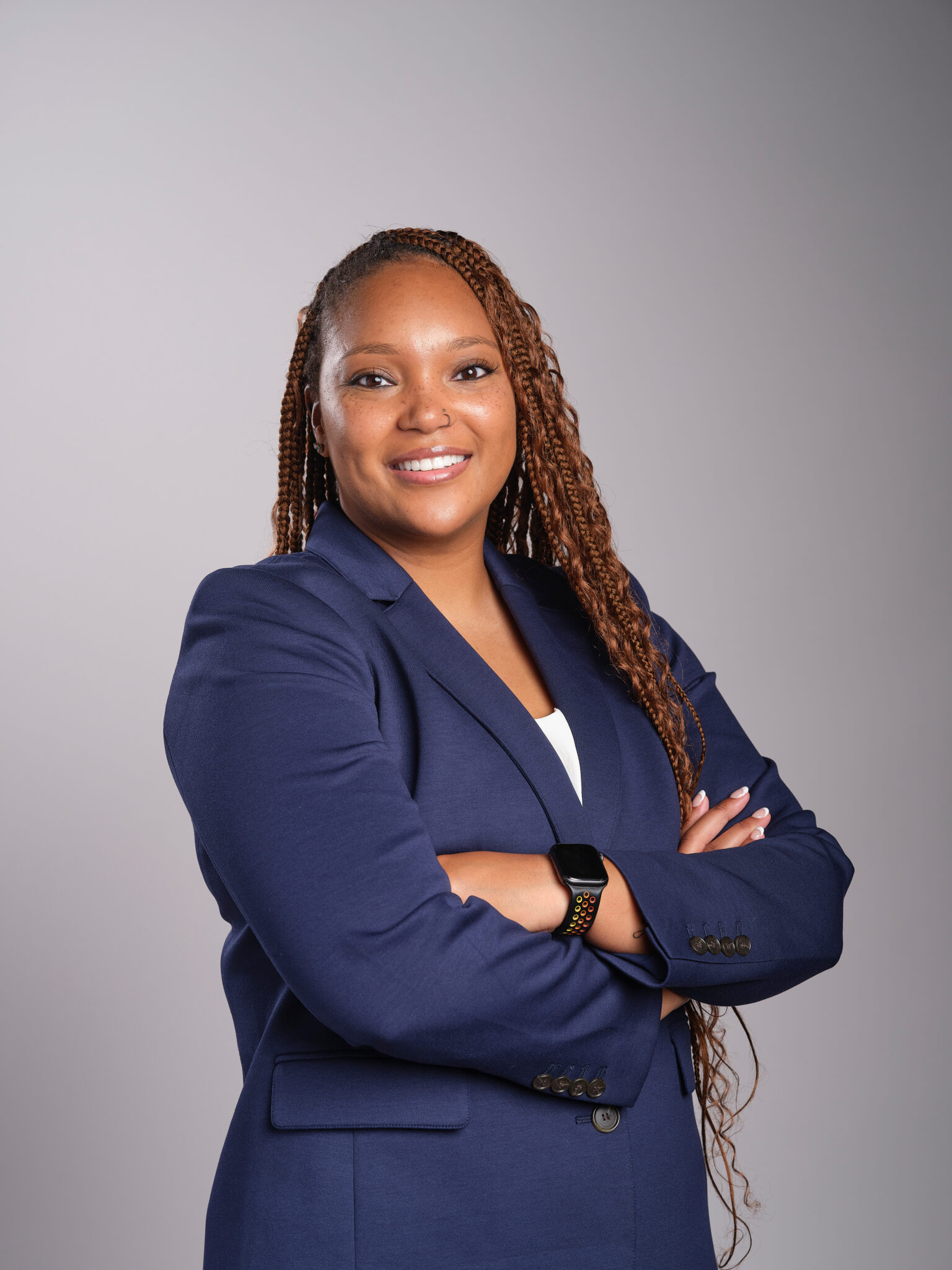
In this edition of CMT’s 5 Questions series, we shine the spotlight on two team members who are active participants in the CMT Mentor Program.
Kiyett Brown, Ph.D.
Kiyett Brown, Ph.D., is a transportation engineer in our Indianapolis office. Prior to joining CMT, Kiyett served as a traffic signal engineer intern at the City of Tallahassee, where she assisted with signal timing updates and retiming efforts. She consistently supported the writing of reports for approval by the Florida Department of Transportation (FDOT) during the implementation of significant traffic operations, while also conducting traffic safety analyses. Additionally, she ensured that SYNCHRO models accurately reflected real-time operations through regular updates. Kiyett has Ph.D. and master’s degrees in civil engineering from Florida A&M University, as well as a bachelor’s degree in mathematics and physics from Emory & Henry College.
What motivated you to participate in the Mentor Program?
I joined CMT new to both the industry and to Indianapolis, so I thought the program would help me get acclimated with my new environment.
What are your goals for your CMT Mentor Program experience?
My goals for the mentor program are to gain a better understanding of the company and its operations, to connect with one of my colleagues on a more personal level, and to get better acquainted with a new city.
What is your favorite aspect of the Mentor Program thus far?
My favorite aspect of the CMT Mentor Program is getting to know my mentor outside of the workplace.
As someone relatively new to both CMT and the Indianapolis area, how has this program and your relationship with your mentor been helpful to you?
Claudia has been helpful in answering any questions I have concerning the firm or daily operations and has also been helpful in locating parks and activities in the surrounding areas.
What would you share with colleagues who are considering participating in the program?
Participating in the program is very helpful with adapting to a new company and new city.

Claudia McAllister-Peterson
Claudia McAllister-Peterson is an ecological engineer knowledgeable about hydrology, stormwater, and drainage design, including outfall analysis, ditches, pipe culverts, open channels, storm sewer systems, and drainage investigations. Claudia also has expertise in water quality compliance and best management practices, stream geomorphology surveys, wetland delineations, and habitat assessments. Claudia has a bachelor’s in ecological engineering from The Ohio State University and works in our Indianapolis office.
What was your CMT Mentor Program experience like when you were in the role of a mentee?
When I began in the mentee role, I was freshly out of college and had moved to a new state and city to take my first full-time job here at CMT. My mentor was Cassie Reiter, PE, ENV SP, and I found it incredibly helpful to have a formal relationship with her, established for the express purpose of fielding questions related to company culture, the industry, and social aspects of this new territory. I benefited greatly from having a person I could relate to and discuss more “soft” skills, conceptual understandings, and big-picture ideas with – as well as a point person for the miscellaneous questions when I didn’t know where to start or who to ask.
What kinds of activities do you and your mentee, Kiyett, do together as part of CMT’s Mentor Program?
Kiyett and I would have lunch together every couple of months to discuss career development, company culture, and her involvement with the National Society of Black Engineers (NSBE).
How has your experience – both as a mentor and a mentee – provided you with learning opportunities?
Watching the different ways engineers have built their career paths and knowledge has been valuable for me. For example, my mentee, Kiyett, completed her Ph.D. and has been involved in the NSBE, while my mentor, Cassie, has been with CMT for the majority of her career since her bachelor’s degree and has worked across all business units in that time. Cassie has done quite a bit of trailblazing and has been a strong supporter of the unconventional dual roles I proposed for my job here as an ecological engineer. It’s been a joy to see how different women embrace engineering careers, and there is much to learn from these different approaches.
In your experience, what is the most rewarding aspect of being part of CMT’s Mentor Program?
The most rewarding aspect of being part of the program is being able to support another person new to Indianapolis and to CMT as a peer and to be trusted to navigate challenges and field questions together.
What insights would you share with CMT colleagues who are considering volunteering as a mentor?
I would encourage young people interested not to underestimate the contributions they can provide to new staff members through this program. Pairings of young people can be advantageous when the two are in relatable life stages, and the relationship can be cultivated as peer support.

